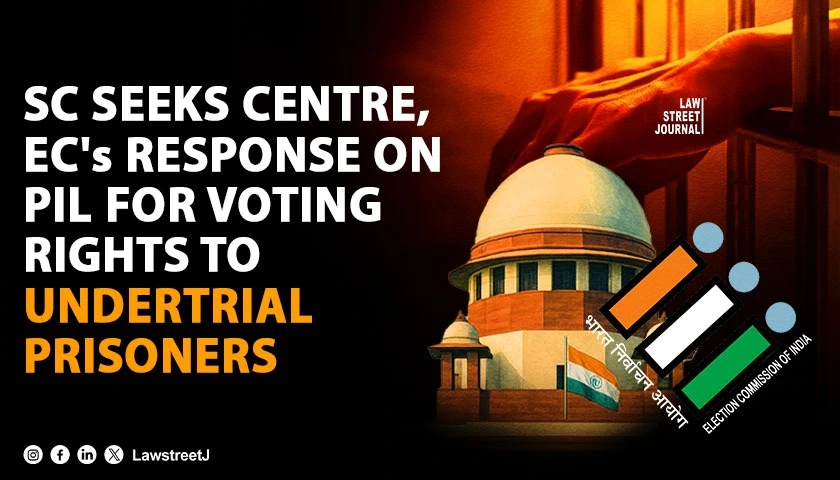NEW DELHI: The Supreme Court on Friday asked the Centre and the Election Commission to file their response on a PIL seeking recognition of voting rights for nearly 4.5 lakh undertrial prisoners lodged in jails across India.
A bench of Chief Justice B R Gavai and Justice K Vinod Chandran sought the response after hearing advocate Prashant Bhushan for the petitioner contending that the present blanket ban imposed under Section 62(5) of the Representation of the People Act, 1951, violated constitutional guarantees and international democratic norms.
The plea was filed by Sunita Sharma, a resident of Patiala in Punjab.
It made the Centre through the Ministry of Law and Justice and the Election Commission as respondents.
The PIL sought a direction to fill the legal vacuum created by Section 62(5) of the RPA by laying down conditions that restrict disenfranchisement only pursuant to an individualised judicial determination, final conviction for specified offences, or the tenure of sentence, instead of the existing blanket ban that applies indiscriminately to all prisoners.
The plea contended that the existing blanket prohibition under Section 62(5) disenfranchised a vast population that continues to enjoy the presumption of innocence under the law.
In Anukul Kumar Pradhan Vs Union of India (1997), the Supreme Court upheld the validity of Section 62(5) holding that the voting was merely a statutory right. The plea, however, relied upon Constitution bench judgment in Anoop Barnwal case, which held that the right to vote is a constitutional right.
The plea also contended, if a convicted individual can contest elections and represent lakhs of voters, why should an ordinary citizen, who has not even been declared guilty, be denied the right to vote and to choose their own representative.
Disclaimer: This content is produced and published by LawStreet Journal Media for informational purposes only and does not constitute legal advice. The views expressed are independent of any legal practice of the individuals involved.















